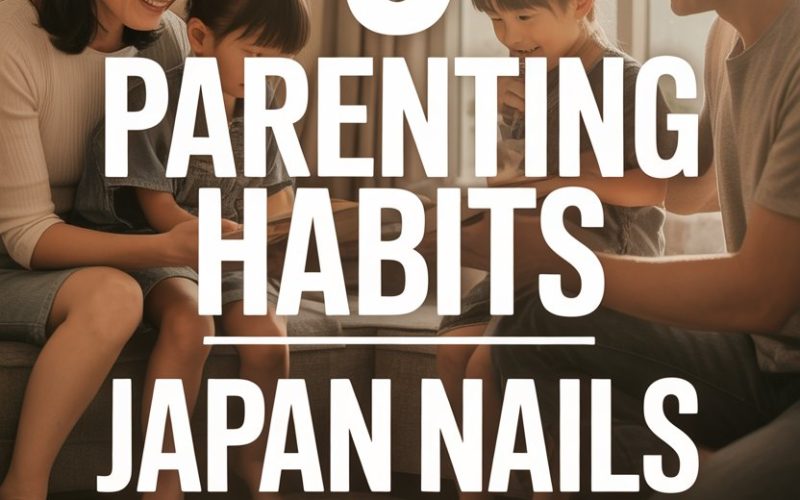Ever looked at Japanese parents and wondered if they’re operating on some ancient, secret parenting manual you never received? You’re not alone.
While no culture has a monopoly on perfect parenting, Japan does certain things so consistently well that even the most together parents elsewhere can’t help but gawk.
Pack your curiosity (and maybe a reusable bento box)—let’s see what parenting habits from the Land of the Rising Sun deserve a spot in your own family routine.
1. The Art of Letting Kids Be Independent (From Tiny Humans to Grown-Ups)
Few things are more humbling than watching a Japanese preschooler march off to the train station—with no adult in sight—while your seven-year-old demands a snack before crossing the living room.
In Japan, fostering independence isn’t a milestone to fret over; it’s woven into childhood.
Children as young as six walk to school alone, run errands, and even star in TV shows like Old Enough! which has toddlers completing real-world tasks solo. Is it a nation-wide trust fall? Not exactly.
Parents spend years teaching small, age-appropriate responsibilities: putting away shoes, tidying toys, minding manners. These tasks grow with the child, yielding kids who can handle themselves with calm, unflappable confidence.
For the Western parent, this can feel like tossing your child into the deep end—without arm floaties. But there’s a middle ground.
Start by having your child help pack their own bag or set out tomorrow’s school clothes. Offer a little more freedom each week.
Yes, it’ll take extra time (and patience), but that moment when your child ties their own shoes or navigates to the neighbour’s house solo is pure magic.
2. Group Harmony Is a Family Value
Imagine a world where “play nicely with others” isn’t just a classroom poster but a family mantra. In Japanese homes, the concept of wa—group harmony—shapes everything from playground etiquette to dinner conversations.
Children are gently steered toward thinking about how their actions affect others. Loud squabbles? Bragging? Not really on the menu.
Researchers point out that this focus on empathy and group awareness leads to more cooperative behaviours (source). At home, parents model calm communication and problem-solving, encouraging kids to work things out quietly and respectfully.
Here’s the reality check: nobody’s expecting your kitchen to turn into a Zen monastery.
Siblings will still argue about who touched whose Lego. But you can borrow from the Japanese playbook by pausing before refereeing squabbles.
Ask your children how their behaviour might have made the other feel. Encourage apologies, not just as a reflex, but as a way to tidy up emotional messes.
Over time, these small nudges add up to a family that can weather any storm—well, at least till someone finds the hidden chocolate stash.
3. The Power of Consistent Routines (That Actually Stick)
Raise your hand if bedtime at your house resembles a hostage negotiation. Now look at Japan, where routines are sacrosanct.
Meals happen at the same time, bath time doesn’t fluctuate like the stock market, and children’s bodies seem to have internal clocks set to “polite society.”
Japanese parents swear by the comfort and predictability of structure. School-aged kids help set the table, participate in pre-meal handwashing rituals, and tackle tidy-up duties as part of daily life (here’s a study on the benefits).
Even playtime and screen time have their schedule, and parents stick to it—with a gentle firmness that never feels like a power struggle.
Bringing some of that home might mean picking one routine (say, bath-then-story-then-bed) and actually sticking to it, come what may. Consistency is the secret sauce.
No, your kids won’t morph into punctual angels overnight. But, much like a good sourdough, routines get better every time you practice.
4. Meals Are Family Affairs—And Kids Eat What’s Served
Parents in Japan aren’t short-order cooks.
Family meals feature vegetables, rice, fish, and fermented mysteries, and children eat what’s put in front of them—often without drama.
Why? Food is treated with respect, and there’s an expectation that everyone shares the same meal. Picky eating happens, but it’s handled with quiet persistence, not bribery or battles.
School lunches are an extension of this philosophy: kids eat together, serve one another, and try everything. There’s even research showing Japanese children have lower obesity rates and healthier habits into adulthood.
The secret weapon: repeated exposure. Children are offered small tastes of all foods, often, with zero pressure to clean their plates.
Western families can take a cue here. Serve one meal, offer a variety of foods, and resist the urge to comment on every bite. Involve kids in meal prep—washing, stirring, arranging veggies into shapes—and watch spinach become less of a villain.
Sure, somebody will claim the carrots are “too orange,” but stay the course. Eating together isn’t just about nutrition; it’s about connection and shared rituals.
5. Discipline Looks a Lot Like Guidance (Not Punishment)
Shouting and time-outs don’t take centre stage in Japanese homes. Instead, parents guide behaviour quietly, using nonverbal cues (a raised eyebrow, a gentle “hmm”) or a brief, private conversation.
Public scoldings are rare. Discipline is seen as teaching, not punishing, and emotions are handled with a kind of calm most of us would pay good money for.
Instead of fixating on what kids did wrong, Japanese parents focus on the feelings behind the behaviour. A child who hits isn’t “bad”—they’re upset, tired, or struggling.
Parents acknowledge the feeling (“You’re frustrated, huh?”), then redirect the action. Studies suggest this approach leads to stronger emotional intelligence and fewer power struggles (read more here).
Try this the next time your child melts down over the “wrong” socks. Acknowledge the emotion, offer a hug, and wait for the storm to pass before talking things through.
It’s tricky (and you’ll need to practice your poker face), but your relationship—and your eardrums—will thank you.
Taking a Page from Japan (No Passport Required)
No two families are alike, and nobody’s suggesting you bow before bedtime or suddenly acquire a taste for nattō.
Still, there’s a lot to love about these Japanese habits: independence given early and often, group harmony as a guiding star, routines that stick, family meals without fuss, and discipline that feels like guidance.
Pick one to try this week. Maybe it’s letting your child pour their own cereal, or instituting a nightly “rose and thorn” talk at dinner, or just biting your tongue longer than usual when your little angel “accidentally” decorates the dog with spaghetti.
Parenting isn’t a contest; it’s a glorious, exhausting, ever-evolving ride.
And if all else fails, remember: there’s always tomorrow’s bento.





